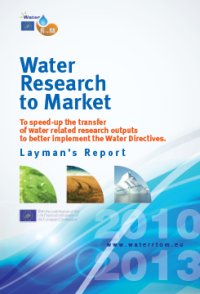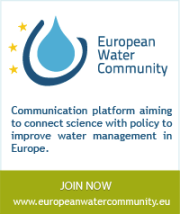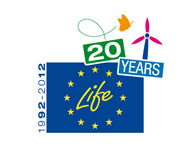Objectives
The implementation of the Water Framework Directive (WFD) and its daughter directives, as well as the Floods Directive, is not a “Business-as-usual approach” : it is known now that less than 40% of water bodies will meet the Good Ecological Status in 2015 ; and then it needs new knowledge and know-how.This concern is shared by many stakeholders, who would like to boost the transfer of research outputs to the real life, even if most of the current initiatives are focused on the policy-making step, not the day-to-day policy-implementation one.
But when looking at the impact of research on water management practices, it is demonstrated that the connection between research and the policy process is not efficient ; as stated by FUNDETEC, a FP6-project, final report in Dec.2007, “the typical length of time needed to complete the development cycle (in the water sector) is 10 years”; it means that research commissioned today will impact water management practices within about 12 years, far after the milestones of the Water Framework Directive (2015, 2021).
The general objective of the project is to speed-up the transfer of research outputs to practitioners (with a targeted time lag down to 3 - 5 years).
The targets are, in the front line,
- the basin and sub-basin authorities,
- the urban planners and municipalities,
- the water users (agriculture, industries), and
- the “doers”, namely the suppliers of technologies, the consultancies, the operators (public or private), and in a second row, the researchers and the research funding bodies.
The project will also help to promote demonstration projects outputs, like LIFE or Interreg, to open their market.
Generally speaking the practitioners are “small or medium sized” entities, sharply focused on their objectives, in a permanent rush and lack of time, with a close eye on their budget bottom line ; they are by nature reluctant to any risk, either because they use public money, or because their own financial health is in the balance. Their relation to research is often weak: they do not speak the same language, they do not have the same time scale, they have different strategies regarding uncertainties and risks, etc.
Very often, not to say always, research outputs are not ready-to-use, i.e. requiring no additional costly works before to be routinely implemented, are not available “on-the-shelf”, and then usable wherever in Europe, in whatever context, by local operators ; this is not only a problem of patent and Intellectual Property Rights (IPR), which could be an obstacle, but mainly a matter of a lack of market-oriented approach (which is normal, when considering the scope of work of the scientists).
Also the transfer of tools having already been tested in a demonstration phase to new users is needed, by helping the testing SME to license it, and/or to sell it, to colleagues in Europe.
The idea is to add a step between research and the existing technology transfer schemes to SME, by pro-actively digging, assessing and promoting the research outputs, while targeting not only the companies, but also their clients.




